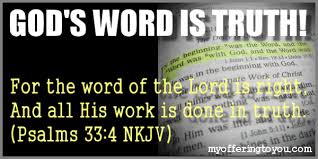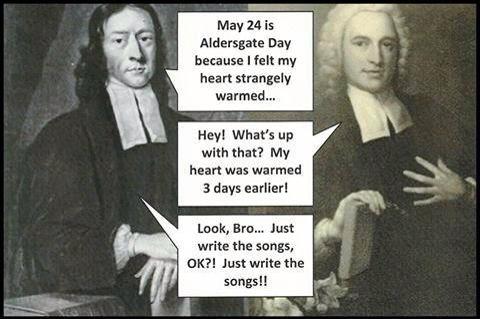Rob Frost in his book ‘Which Way for the Church?,’ reflects on the church’s options of ‘slow death by irrelevance, or the pursuit of a vision that might just turn back the destructive forces in society.’ The urgent call is for a biblical ‘church that can still be what her Master intended,’[1] especially when ‘the vast majority of modern Christians work with cultural misconceptions about Christ.’ Stephen Travis book, ‘The Church Under Fire,’ provides a helpful reflection on ‘the verdict of the risen Christ on the life of the first-century churches, we see the aspects of our church life mirrored in theirs .. and learn from the words of Christ to those who before us have followed him in a hostile world.’[2] Joel Edward explained that ‘our Christian ignorance consequently means that people ‘outside’ the church also have no real idea who the authentic Jesus,’ the head of the church upon who the church’s pillar, foundation/authority is.[3] The church is not just a label without clear biblical definition, foundation or ground of authority.
The Bible explained that the Church is the ‘pillar of truth,’ and this biblical truths are to be passed to the next generation (1Tim 3:15, Deut 11:19). The Greek word for pillar is stulos, from stuo means a post, a support that conveys the purpose of the church which is to uphold the truth Jesus gave her. The world is faced with two choices – the Truth and the lie. The truth is God’s nature and Satan is the father of lies (Jn 8:32). The truth is revealed to the church – the ekklesia, people called out of the world, set apart to be the body of Christ and sent to voice and uphold the truth, the Word of God for everyone to see. The church is not the truth but set apart and sent as the beacon of Truth (Jn 14). Her Majesty Queen Victoria affirmed that the secret of England’s greatness is the Bible and the many prosperous nations today thrived on the authority of the church through the Word of God. It is however possible that ‘nations may still have the institutional structures of godliness, they are ones which generally now deny God as the real authority.’[4] Just as United Kingdom or Nigeria or America needs an authoritative government to interpret their Constitutions, the Church, the pillar of truth, a solid element has the authority to uphold and make known the truth about God’s nature and promises. The Church is sanctified, set apart by the truth and for the truth. It is the truth of the Word of God, the Bible that makes the church a pillar that bears inscriptions of truth. The church is therefore ‘entrusted with the business of maintaining the truth, of defending it from the assaults of error, and of transmitting it to future times. The truth is, in fact, upheld in the world by the church. The people of the world feel no interest in defending it, and it is to the church of Christ that it is owing that it is preserved and transmitted from age to age.’[5]
The purpose of the Church as the pillar of truth involves the task of evangelism, setting people ‘free from the power of false worldviews by diagnosing the point where they fail to stack up against reality.’ Pearcey likened this to Isaiah’s argument ‘against the wooden idols of Old Testament times (Is. 44:6ff). The church as the pillar of truth is sent to ‘deconstruct the conceptual idols, that hold so many people captive.’ Pearcey’s three-part simple grid of Creation, Fall, and Redemption provides an effective means of comparing worldviews with reference to the purpose of the church as the pillar of truth and the Great Commission.[6]
Truth about Creation: The church is the pillar of truth about creation and most especially the biblical concept of the marriage and family. Beyond the defence of Christian faith, every worldview or philosophy has to start with a theory of origin. Where did it all come from? Who are we, and how did we get here? Beyond the theory of evolution, the Bible creation account doesn’t imprison God within the confines of natural laws. God in His providence is unquestionable and unchanging, unlike the unstable hypothesis of evolution.[7]
The creation truth points to God’s sovereign control of nature, human nature and history. The Bible is very clear about human essential nature and makeups like God, “Then God said, ‘Let us make man in our image in our likeness”(Gen.1:26). As God’s image, one of the truth that the church must uphold about human nature is that there is no being who is without essential tie to God spiritually, personally and morally. After the Fall, the human nature was marred by sin and became corrupted beyond the redemption of any human or social order even though the image of God remains in us. The pillar of truth that the church continue to uphold about our human sinful nature is that only Jesus the likeness of God can restore the image of God in human nature (Jn 3:16). According to Genesis account, the human quest and desire for self-rule, ‘Original Sin,’ through Adam and Eve resulted in the temptation and disorientation which we still struggle with today (Gen 3:5). The Garden of Eden became the scene of ‘the great divorce.’ The biblical view of human nature is solidly realistic. According to Pearcey, the doctrine of the Fall teaches us that children are, like all of us, prone to sin and in need of moral and intellectual direction.’ The church is sent to uphold this truth beyond the Utopians and philosophies that ‘deny the reality of the Fall and give birth to progressive methods of education that refrain from teaching students true and false, or right from wrong, but instead expect them to discover their own ‘truths.’[8] Indeed, human nature is marred by sin, yet we are not destroyed because Human image of sin is faced with Holy image of the Saviour.
Truth about God’s nature – There are many attributes of God that the church is sent to uphold because they are the truth about God but ‘ignored in this era, they are hated and despised by many because of the vaunted independence and self-worship of modern man.’ God’s attributes of ‘Sovereignty, Holiness, Omnipotence, Omniscience, and Immutability, Wrath, and Love, set God apart from the false Gods of pagans, and from the false Gods of “Christians” who … make up their own God out of their imaginations.’ God is Holy and pure in everything and His power and knowledge are infinite and this sets Him apart from all His creatures (Rev 15:4). Things change, people change; fashion changes, theology and philosophy changes, music changes, politics change–everything and everyone changes, except God (in Essence and Nature), the unchanging Changer. The secular world hate the concept of God who possess wrath especially against sin, hence all they make an idol and create the theology of a God who is all love whereas, the Bible is ‘absolute about the fact that God is a God of wrath’ (Rom 1:16-18). The church as the pillar of truth is sent to teach that ‘atonement and salvation by grace are required because of God’s righteous wrath against sin … If we deny wrath, we essentially deny the gospel’ (1Thess 1:10, Rom 3:25-26, Jn 3:16).[9] By human reasoning some of these attributes of God are seemingly incompatible; while wrath (justice) involves the dispensing of deserved punishment for sin, love points to holiness, provision of compassion and pardon for sinner (Jn 3:16). The church as pillar of truth is about announcing God’s perfect love exercised through His holiness and perfect justice (Rom 8:1, 5:9). By nature God is love and holy, however God’s holiness and love is not guarantee against the storms of life, hence the church as the pillar of truth is to provides direction in the storms of life and the reality of heaven and hell (Phill 3:14).
Truth about Jesus’ Incarnation, Crucifixion, and Resurrection: The Lord Jesus is The Incarnate Word, hence the church as the pillar of truth is sent to uphold the absolute truth and necessity of Jesus to make possible our salvation through his death on the Cross. (Heb 9:22, Rev 13:8)). On the cross, Christ defeated sin and Satan and won the decisive victory; yet much of the world remains under the power of the enemy until Christ returns as conquering King. Resurrection theology is not just a philosophy but a personal and corporate call to Resurrection living and community, hence the church as eschatological sign is sent not just to uphold a message of merely what “has been” (past) and “will be” (future); but to teach the message of what “is”, the vital dynamic of the resurrected “I AM” of God who restores the whole of creation.[10]
Proclamation – The church as the pillar of truth is called to adore and proclaim Resurrection Theology that Jesus Christ is the only way by which people can come to know God though ‘many people see proclaiming the gospel as disparaging of other people and their faiths.’ The reflection is that ‘sociological fact of a plural society does not necessarily entail a philosophical acceptance of pluralism.’ According to Tony Watkins ‘Christians believe there are moral absolutes – especially in the area of sex and relationships. We are accused of being arrogant, bigoted and intolerant.’[11] With openness to other faith, the church is set apart and sent to uphold the truth , the absolute claims of Jesus as the only way in a pluralistic and secular society (Jn 14:6).[12] Rowan Williams aptly explained that the Church is supremely the Church when – in the old phraseology of Reformed theology – its stands under the Word of God and exposes itself to the act of God in the sacrament.[13] To uphold Jesus’ claim like the early Christians according to Michael Green, the church is to simply proclaim ‘Jesus with all the power and persuasiveness at their disposal.’[14]
Danger of avoiding and minimising the truth: Our contemporary culture is shifting from the truth that once established it; shifting from church influence and thereby dictating and influencing the church as an organisation with secular definition of church’s teachings, practices, and beliefs. The danger is that the church becomes more user friendly rather than counter-cultural, standing as pillar and foundation of truth. When culture overwhelms the church, the church begin to minimise the truth by mirroring what the culture want us to believe and practice. Closing with the words of Williams, the church is called, set apart and sent to give ‘place to God’s future, instead of occupying and defending a place that is its own,’ or mirroring the world secular dictates.
[1] Frost, Rob, Which Way for the Church?: Is there hope for the institutional church? (Eastbourne: Kingsway Publications, 1997), pp. bp, 131-138
[2] Travis, Stephen, The Church Under Fire (Oxford: The Bible Reading Fellowship, 1995), pp. 7, 8,
[3] Edwards, Joel, An Agenda for Change: A Global Call for Spiritual and Social Transformation (Grand Rapids: Zondervan, 2008), p. 15
[4] Edwards, An Agenda for Change, p. 12
[5] http://biblehub.com/commentaries/1_timothy/3-15.htm
[6] Pearcey, Nancy, Total Truth: Liberating Christianity from its Cultural Captivity (Wheaton: Ill: Crossway Books, 2008), pp. 133-134
[7] Andrews Edgar, Who Made God? Searching for a Theory of Everything (Darlington: EP Books, 2009), p. 171
[8] Pearcy, Total Truth, p 129
[9] https://bible.org/seriespage/4-nature-god
[10] http://www.christinyou.net/pages/restheol.html
[11] Watkins, Tony, ‘All Inclusive – Biblical Perspective on Tolerance,; in Watkins, Tony (ed), Truth Wars: Talking About Intolerance (Mitton Keynes: Authentic/Damaris Trust, 2005), p. 15
[12] Newbigin, Lesslie, The Gospel in a Pluralist Society (London: SPCK, 1989), p. 1
[13] Williams, Rowan, The church as sacrament, International Journal for the Study of the Christian Church Vol. 10, No. 1, February 2010, 6–12, http://people.bu.edu/joeld/church-sacrament.pdf
[14] Green, Michael, Acts for Today (London: Hodder and Stoughton, 1993), pp. 37- 38











Recent Comments